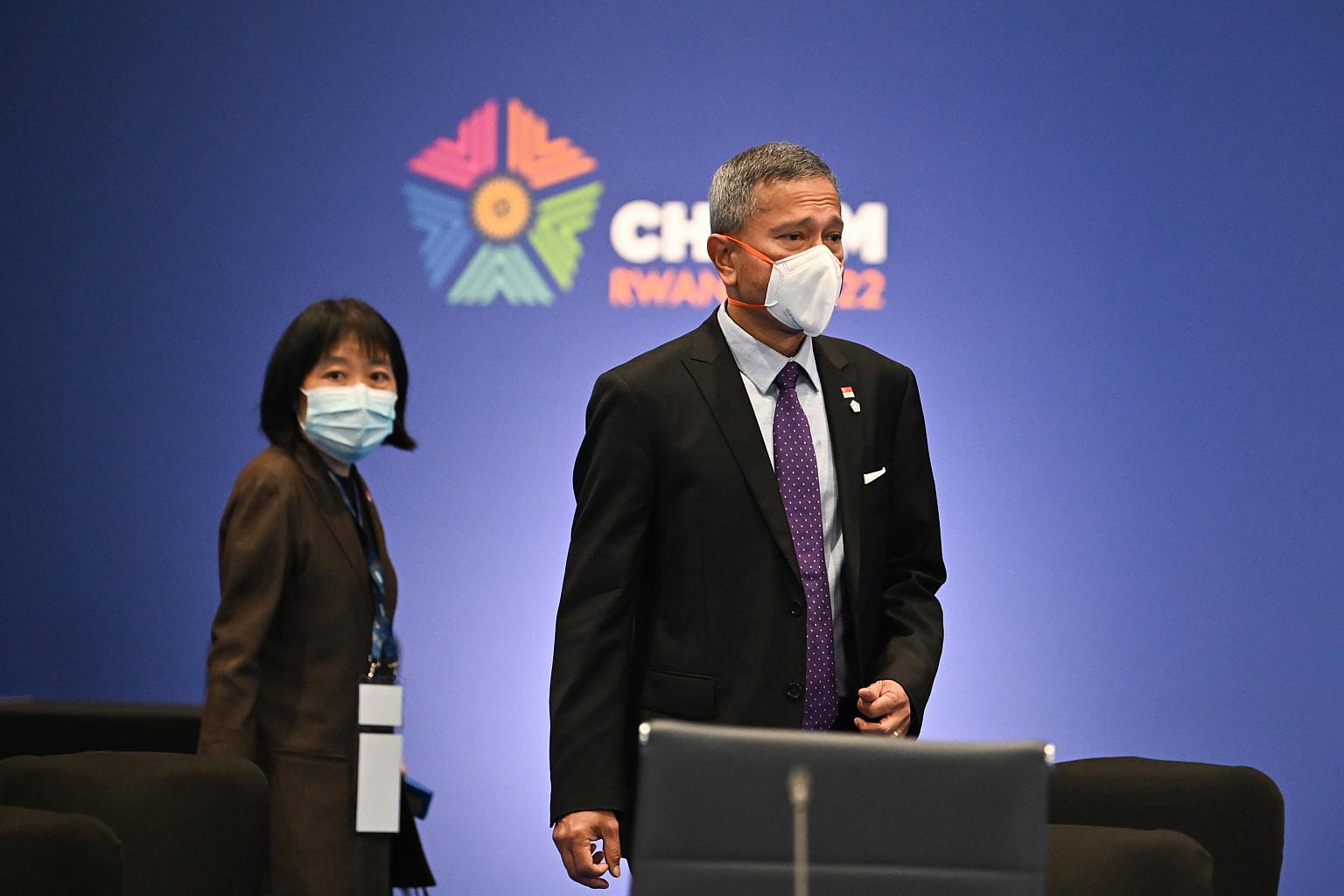Global cooperation needed to ensure international trade remains smooth post Covid-19: Vivian
Sign up now: Get ST's newsletters delivered to your inbox

Dr Vivian Balakrishnan said countries must resist the temptation to turn inwards.
ST PHOTO: LIM YAOHUI
KIGALI - Countries should work together to ensure that international trade remains smooth and open so that global post-Covid-19 recovery can be inclusive, Foreign Minister Vivian Balakrishnan told his counterparts from more than 40 nations on Thursday (June 23).
At the Commonwealth Foreign Affairs Ministers' Meeting held in Kigali, Rwanda, Dr Balakrishnan noted how the shock of the pandemic fuelled an initial wave of nativism and outright protectionism, with many countries acting unilaterally to protect their own short-term interests.
This, he said, led to massive supply chain disruptions and consequences for many nations.
"I want to make the point that we must resist the temptation to turn inwards. Autarky is not viable, especially for small states. Instead, we need to work together to ensure that international trade remains smooth, predictable, open and reliable."
The summit was held in conjunction with the Commonwealth Heads of Government Meeting (CHOGM), which will be held in Kigali from Friday to Saturday (June 24 to 25).
Prime Minister Lee Hsien Loong and Dr Balakrishnan arrived in Kigali on Thursday to attend the event.
Dr Balakrishnan on Thursday highlighted four key lessons that countries can be mindful of to tackle global challenges.
First is the importance of ensuring reliable supply chains for the world, and the minister noted that while many countries turned inward to protect their own interests, Singapore was determined to maintain an open flow of goods, people and services.
"We know that a stable and resilient supply chain is crucial for ensuring the continued flow of essential goods - food and medical supplies, which are all necessary to sustain life in a pandemic, or indeed, in a war. This is a lesson which remains relevant even now," he said.
Second, Dr Balakrishnan stressed that as nations build on the momentum of digitalisation that came with Covid-19, they must also avoid a widening digital gap and make sure no one is left behind. This means pervasive, universal education and training in digital skills as well as investing in proper infrastructure and expanding access to data and digital public goods, he said.
The third lesson he shared was on the significance of resilience, trust, and social capital, and Dr Balakrishnan highlighted how the best outcomes occurred in societies with stronger trust among fellow citizens, as well as trust in their socio-political institutions.
Last, the minister touched on international cooperation, and said that the global community needs to make sure that countries embrace a form of multilateralism that is updated, responsive, networked, and represents the interests of all nations at the Commonwealth.
In a Facebook post on Thursday on his arrival in Kigali, Prime Minister Lee Hsien Loong said that he was looking forward to meeting Commonwealth leaders over the next few days to review developments in the Commonwealth and discuss global issues, as well as reaffirm ties with Singapore's partners.
He will attend events at the summit till Saturday, and will remain in Kigali for an official bilateral visit on Sunday and Monday, where he will meet Rwandan President Paul Kagame.
This is the first time in four years that CHOGM, usually a biennial event, will be held. It was postponed twice due to the Covid-19 pandemic and was last held in London in 2018, which PM Lee also attended.
The summit this year will see leaders from 54 countries gathering in Kigali and is expected to attract more than 5,000 participants, including government officials, business leaders and civil society representatives.
Key issues expected to be discussed by the leaders include sustainability, Covid-19 recovery and economic vulnerability.


